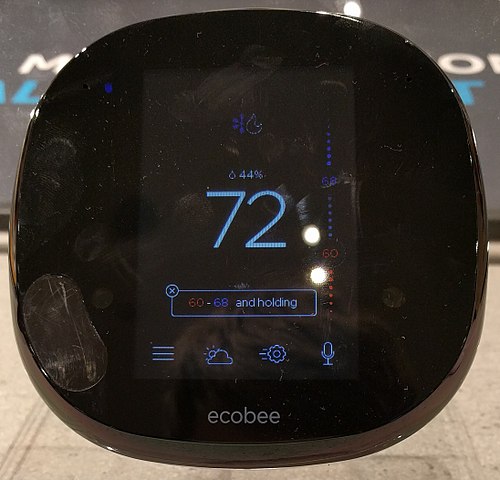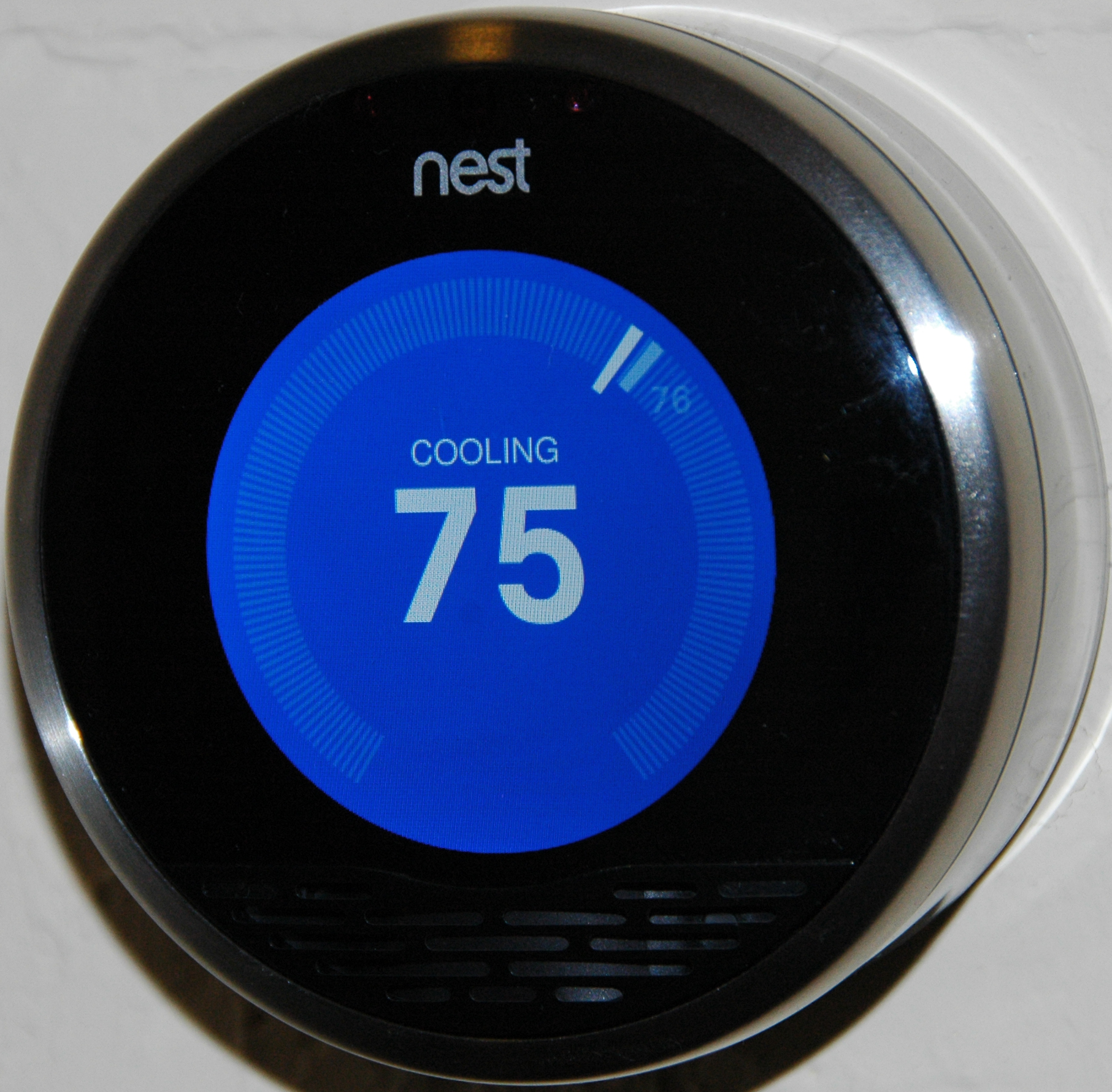Difference Between Ecobee and Nest
Everyone knows the significance of home automation. In fact, smart homes are the future – a dream home where all your devices and appliances can talk to each other. But the one thing that keeps your home cozy and keeps you warm, the thing that keeps your home from going back to the ice age is a thermostat. Since we live in a digital era, thing are getting smart, whether it’s your lighting system or the heating system. Similarly thermostats were one of the first home devices to go smart, hence the name smart thermostat. Today, there are a host of smart thermostats available out there on the market and they can do all the things normal thermostats could do and much more.
Smart thermostats substantially reduce the power usage from the HVAC system and provide heat scheduling functionality. They can be controlled locally as well as remotely via a smartphone, PC, or tablet. The most basic function of a smart thermostat is temperature control which it efficiently does using a temperature sensor in the device itself. But finding the right thermostat for your home is not that simple as it seems, as there are lots of options out there to choose from. Ecobee and Nest are the two leading smart thermostats that consistently come out on top in terms of efficiency and value for money. We present an unbiased comparison between the two to find a winner.

What is Ecobee?
Ecobee is a Toronto-based home automation company and one of the leading manufacturers of residential and commercial thermostats. The smart, WiFi- enabled thermostat maker has been on the forefront of the smart thermostat market for years and is still taking on its biggest rival Nest by expanding its product lineup. The company has grown exponentially since it launched its first product in 2009. It has doubled its business and outgrown its customer base in a few years. Now, Ecobee is a leading provider of smart, Wi-Fi enabled thermostats. The latest in the line is the Ecobee4 that, as the company says, is specially designed to be seen and heard. It’s the company’s first smart thermostat with built-in Amazon’s very own voice assistant, Alexa.
What is Nest?
Nest Labs is a leading manufacturer and one of the prominent names of smart home devices such as thermostats, indoor & outdoor security cameras, smoke detectors, etc. It’s a home automation company that specializes in making Wi-Fi enabled smart home products, especially smart thermostats. The company’s first flagship product was the Nest Learning Thermostat which optimizes heating and cooling of your smart homes to conserve energy. Nest Lab was founded by two former Apple engineers Tony Fadell and Matt Rogers, in 2010 with the primary focus on self learning thermostats. The idea was to build a heating and cooling system that would automatically create a schedule based on the daily routine of the users. The Nest Learning Thermostat is in its third-generation now.

Difference Between Ecobee and Nest
Design of Ecobee and Nest
Both Ecobee and Nest are good looking, energy-efficient smart thermostats. It’s hard to ignore the allure of the round, gleaming dial of the Nest and that fine ring of brushed stainless steel is a classic touch. The Ecobee4 has the same black faceplate with a flat touchscreen display in the middle as its predecessor, Ecobee3. The blue LED strip at the top does stand out and it fires up when Alexa is listening and it turns red when the built-in microphone is turned off. The Nest 3 is clearly the winner in terms of design and aesthetics.
Sensibility
The Ecobee4 gets all its power from a hardwired connection which means it does not rely on a battery or a HVAC equipment to charge itself. Plus the extra sensors clearly make the Ecobee4 the most efficient and effective smart thermostat in the segment. The Nest 3, on the other hand, is powered by a built-in rechargeable battery which gets its power directly through the heating or cooling system wires. It switches off the Wi-Fi in case of a power outage to preserve the battery life until it turns of completely. The Nest only determines the ambient temperature t o adjust the heating or cooling.
Usability of Ecobee and Nest
The Ecobee4 takes only a few minutes to install – installing the Ecobee4 is as easy as downloading the Ecobee app. Just screw on the backplate to the wall, place the wires, attach the thermostat tightly and you’re good to go. The extra sensors optimize the heating or cooling level throughout your home, not just the area around the thermostat. The Nest 3 takes almost same time to install, though a screwdriver comes along with the kit which is very rare. It automatically adjusts temperature based on the temperature outside.
Ecobee vs. Nest: Comparison Chart

Summary of Ecobee Vs. Nest
Both Ecobee and Nest are the leading names in the smart thermostat market which work more or less in the same way, each with its own set of pros and cons and practically the same purpose – to keep your home warm and cozy. If you’re into design and aesthetics, then it’s hard to ignore the gorgeous design of the Nest. But in terms of features and usability, Ecobee has a little edge over the Nest. If the smart, self-learning features of the Nest fascinate you, then Escobee4 is not for you. On the other hand, if you want an Alexa-enabled smart device with Apple’s HomeKit compatibility and remote sensing ability for a larger home, then Ecobee is long way to go. The final decision comes down to your preference.
- Difference Between Caucus and Primary - June 18, 2024
- Difference Between PPO and POS - May 30, 2024
- Difference Between RFID and NFC - May 28, 2024
Search DifferenceBetween.net :
Leave a Response
References :
[0]Spivey, Dwight. Home Automation For Dummies. Hoboken, New Jersey: John Wiley & Sons, 2015. Print
[1]Miller, Michael. The Internet of Things. Indianapolis: Que Publishing, 2015. Print
[2]Image credit: https://upload.wikimedia.org/wikipedia/commons/thumb/f/fe/Ecobee4.jpg/500px-Ecobee4.jpg
[3]Image credit: https://en.wikipedia.org/wiki/Nest_Labs#/media/File:Nest_front_official.png
